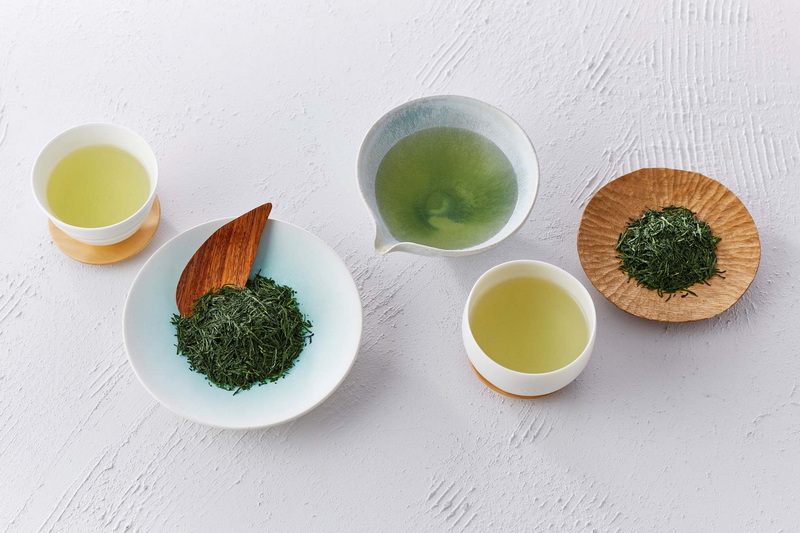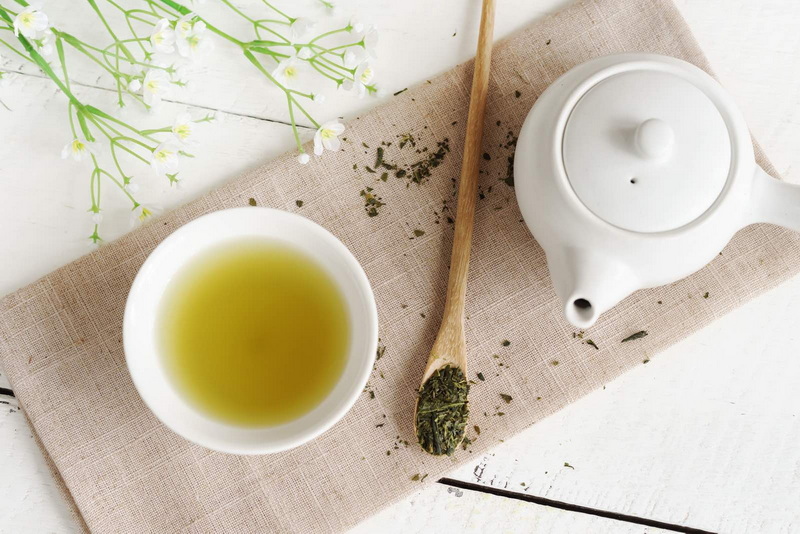Content Menu
● Introduction to L-Theanine and Melatonin
>> L-Theanine
>> Melatonin
● Mechanisms of Action
>> L-Theanine
>> Melatonin
● Comparative Effectiveness
● Is L-Theanine 60% More Effective Than Melatonin?
● Additional Considerations
>> Interactions with Other Supplements
>> Long-Term Use
>> Lifestyle Factors
● Beyond Sleep: Additional Benefits of L-Theanine and Melatonin
>> L-Theanine
>> Melatonin
● Integrating L-Theanine and Melatonin into Your Health Regimen
>> Lifestyle Adjustments
>> Dietary Considerations
>> Mindfulness and Relaxation Techniques
● Conclusion
● FAQs
>> 1. What is the recommended dosage of L-theanine for sleep?
>> 2. Can L-theanine and melatonin be taken together?
>> 3. Does L-theanine cause daytime drowsiness?
>> 4. What are the potential side effects of melatonin?
>> 5. Can L-theanine improve cognitive function?
● Citations:
The quest for better sleep has led many to explore natural remedies, with both green tea L-theanine and melatonin being popular choices. While melatonin is well-known for its role in regulating sleep-wake cycles, L-theanine, found in green tea, has gained attention for its relaxing effects and potential to improve sleep quality. This article delves into the effectiveness of L-theanine compared to melatonin, exploring their mechanisms, benefits, and potential drawbacks.

Introduction to L-Theanine and Melatonin
L-Theanine
L-theanine is an amino acid primarily found in green tea, known for its calming effects without inducing drowsiness. It promotes relaxation by increasing alpha brain waves, which are associated with a relaxed yet alert state, and by influencing neurotransmitters like GABA, serotonin, and dopamine. This unique combination helps reduce stress and anxiety, making it easier to fall asleep and maintain quality sleep.
Melatonin
Melatonin is a hormone produced by the pineal gland that plays a crucial role in regulating the sleep-wake cycle. It is often used as a dietary supplement to treat sleep disorders such as insomnia. Melatonin works by signaling the body that it is time to sleep, helping to establish a consistent sleep schedule.
Mechanisms of Action
L-Theanine
1. Relaxation and Alpha Waves: L-theanine increases alpha brain waves, promoting a relaxed state without causing drowsiness.
2. Neurotransmitter Regulation: It affects GABA, serotonin, and dopamine levels, which are crucial for mood regulation and sleep.
3. Glutamate Regulation: L-theanine may block glutamate receptors, reducing excitatory neurotransmitter activity that can disrupt sleep.
Melatonin
1. Sleep-Wake Cycle Regulation: Melatonin signals the body to prepare for sleep, helping regulate the circadian rhythm.
2. Direct Sleep Induction: Unlike L-theanine, melatonin directly induces sleepiness by mimicking the body's natural sleep hormone.
Comparative Effectiveness
While both L-theanine and melatonin can improve sleep quality, their effectiveness can vary based on individual needs and circumstances.
- L-Theanine: Studies suggest that L-theanine can improve sleep quality by reducing stress and anxiety, promoting relaxation, and enhancing sleep efficiency without causing daytime drowsiness. It may be more beneficial for those who struggle with falling asleep due to stress or anxiety.
- Melatonin: Melatonin is effective for regulating sleep-wake cycles and is often used to treat insomnia. It directly induces sleepiness and can help those with irregular sleep schedules or jet lag.
Is L-Theanine 60% More Effective Than Melatonin?
There is no direct study comparing the effectiveness of L-theanine and melatonin with a specific percentage difference like "60% more effective." However, L-theanine's unique ability to promote relaxation without inducing drowsiness makes it a valuable option for those seeking improved sleep quality without the risk of daytime sleepiness. Melatonin, on the other hand, is more direct in inducing sleep but may not address underlying stress or anxiety issues.
Additional Considerations
Interactions with Other Supplements
Both L-theanine and melatonin can interact with other supplements or medications. For example, L-theanine may enhance the effects of caffeine, while melatonin can interact with certain antidepressants. It is crucial to consult with a healthcare provider before combining these supplements with other substances.
Long-Term Use
Long-term use of melatonin may lead to dependence or reduced effectiveness over time. L-theanine, being a natural amino acid, generally does not have these issues, but it is still important to monitor its effects and adjust dosages as needed.
Lifestyle Factors
Improving sleep quality also involves addressing lifestyle factors such as maintaining a consistent sleep schedule, avoiding caffeine and electronics before bedtime, and creating a relaxing sleep environment. Both L-theanine and melatonin can be part of a comprehensive approach to better sleep.

Beyond Sleep: Additional Benefits of L-Theanine and Melatonin
L-Theanine
1. Cognitive Function: L-theanine can enhance focus and concentration by promoting a state of calm alertness. It is often used by students and professionals to improve productivity.
2. Stress Reduction: Beyond sleep, L-theanine is effective in reducing stress levels throughout the day, making it beneficial for overall mental well-being.
Melatonin
1. Antioxidant Properties: Melatonin has antioxidant properties that can help protect against oxidative stress and inflammation in the body.
2. Immune System Support: Some research suggests that melatonin may support immune function, although more studies are needed to confirm this effect.
Integrating L-Theanine and Melatonin into Your Health Regimen
Lifestyle Adjustments
Incorporating L-theanine and melatonin into your routine should be part of a broader approach to health. This includes maintaining a balanced diet, engaging in regular exercise, and practicing stress-reducing activities like meditation or yoga.
Dietary Considerations
Green tea, which contains L-theanine, can be a healthy addition to your diet. For melatonin, ensuring adequate vitamin B6 intake is important, as it supports melatonin production in the body.
Mindfulness and Relaxation Techniques
Combining supplements with mindfulness practices can enhance their effectiveness. Techniques like deep breathing, progressive muscle relaxation, and mindfulness meditation can help reduce stress and improve sleep quality.
Conclusion
Both L-theanine and melatonin have their strengths in improving sleep quality. L-theanine offers a holistic approach by reducing stress and promoting relaxation, while melatonin directly regulates the sleep-wake cycle. The choice between them depends on individual needs—whether one seeks to address stress-related sleep issues or simply needs help falling asleep.

FAQs
1. What is the recommended dosage of L-theanine for sleep?
The recommended dosage of L-theanine for sleep varies, but studies often use around 200 mg before bedtime. It is essential to consult with a healthcare provider for personalized advice.
2. Can L-theanine and melatonin be taken together?
Yes, L-theanine and melatonin can be taken together. However, it is crucial to consult with a healthcare provider to ensure safe and effective use.
3. Does L-theanine cause daytime drowsiness?
No, L-theanine does not typically cause daytime drowsiness. It promotes relaxation without sedation, making it suitable for use at any time of day.
4. What are the potential side effects of melatonin?
Melatonin is generally safe but can cause side effects like dizziness, nausea, and headaches in some individuals. It is important to follow recommended dosages and consult with a healthcare provider if side effects occur.
5. Can L-theanine improve cognitive function?
Yes, L-theanine may improve cognitive function by enhancing focus and reducing stress. It is often used in combination with caffeine to improve mental clarity and performance.
Citations:
[1] https://yamamotoyama.co.jp/en/blogs/column/reading258
[2] https://pmc.ncbi.nlm.nih.gov/articles/PMC9017334/
[3] https://www.jstage.jst.go.jp/article/jnsv/68/6/68_540/_article
[4] https://cn.iherb.com/blog/l-theanine/1446
[5] https://pubs.rsc.org/en/content/articlehtml/2023/fo/d3fo01247f
[6] https://www.frontiersin.org/journals/nutrition/articles/10.3389/fnut.2024.1419978/full
[7] https://pmc.ncbi.nlm.nih.gov/articles/PMC11152521/
[8] https://www.sleepfoundation.org/sleep-aids/l-theanine-for-sleep
[9] https://pubmed.ncbi.nlm.nih.gov/25759004/
[10] https://www.medicalnewstoday.com/articles/324120
[11] https://www.nature.com/articles/d42473-023-00394-0
[12] https://pmc.ncbi.nlm.nih.gov/articles/PMC5537891/






























